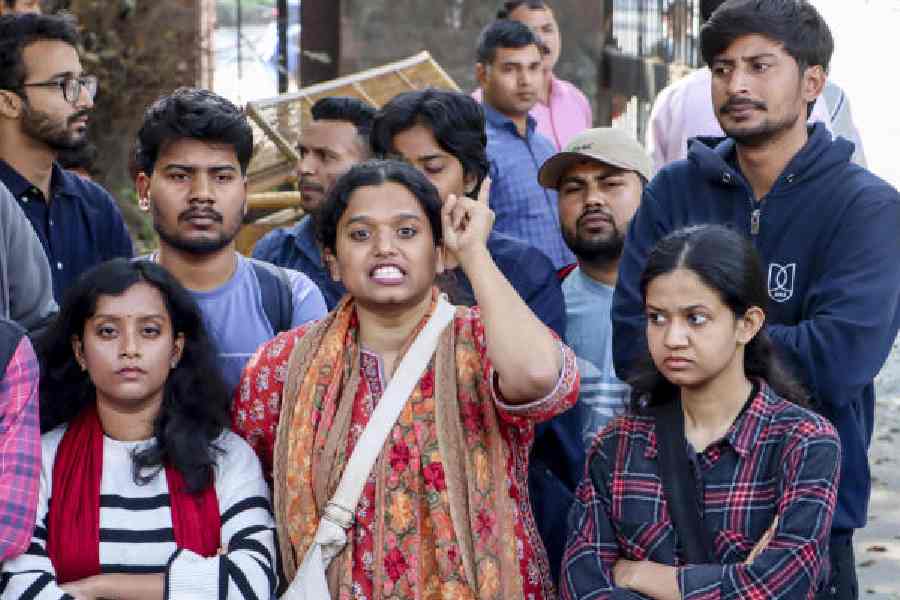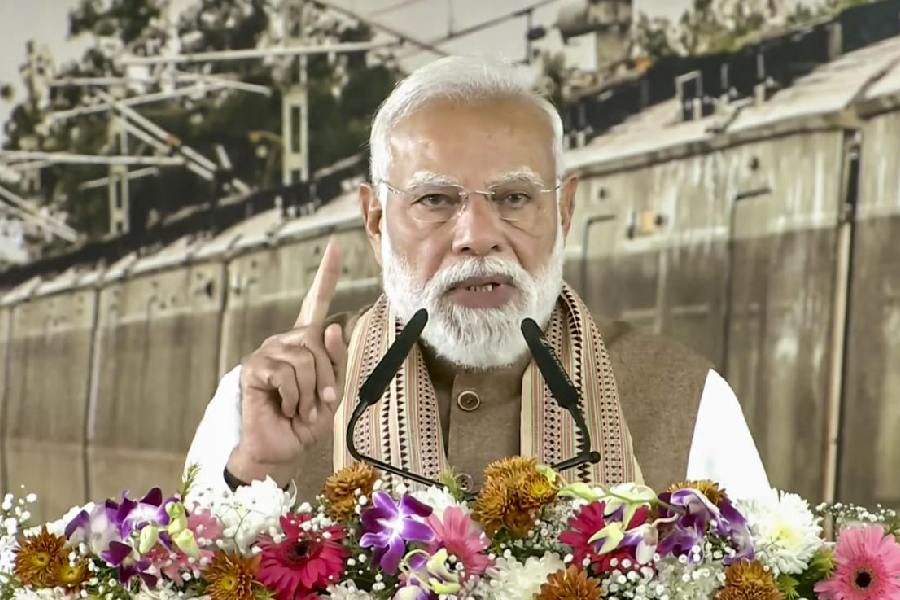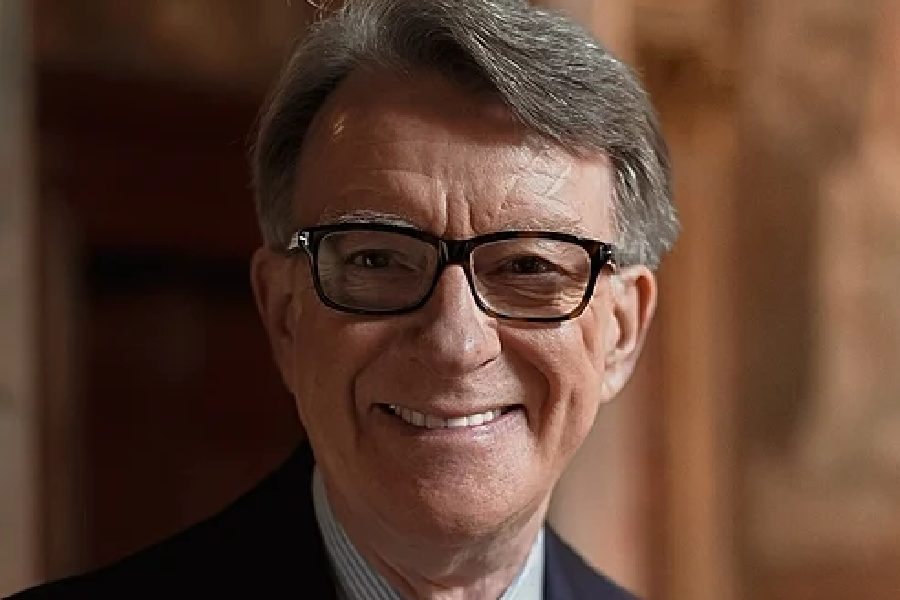 |
Is Hindi India’s lingua franca now? It certainly seems to be the default language of pan-Indian politics: Narendra Modi uses it for his speech-making in every part of India regardless of vernacular context, and so does Arvind Kejriwal.
When Narendra Modi visited Calcutta, he larded his speech with references to Tagore and Vivekananda, but the speech itself was made in the declamatory Hindi favoured by the sangh parivar. Kejriwal conducted his Bangalore ‘road show’ in the mongrel Hindi that seems to come naturally to him. It’s an interesting dialect, very unlike the sarkari Hindi favoured by north Indian politicians. His idiom owes nothing to High Hindi; it is transactional, colloquial and peppered with basic English words. His rhetorical style owes more to the cut and thrust of coffee-house argument than it does to any recognizable form of public speaking.
Despite that, or perhaps because of it, he is a remarkably effective populist. There are no oratorical flights; he depends, instead, on rhetorical simplifications. The Kejriwal classic, in this regard, is his indictment of Reliance in the matter of gas pricing. In his stump speech, Kejriwal makes the case that a corrupt political class has sold the nation’s natural resources to Big Business for a song. Reliance, according to him, has admitted that it costs the company no more than a dollar per unit to extract natural gas, but it has been allowed to sell it at four dollars a unit. Why is Reliance allowed to profiteer like this, asks Kejriwal? Shouldn’t it be selling that gas for the cost of extraction plus a commission for itself, instead of selling it back to the nation at a multiple of that cost? Having set up the argument, Kejriwal cuts to the heart of the matter. “Kuain kiské hain?” he asks.
Whose wells are these? Kejriwal’s answer, of course, is that the gas in the ground belongs to the nation, and that it is a scandal that a corrupt political class has allowed Reliance to hold the nation to ransom by raising the price of gas at will. He ends by warning that a deal has been inked that will allow Reliance to sell this critical resource at eight dollars a unit and that this will lead to rampant inflation. Kejriwal is unmoved by counter-arguments based on expert testimony about gas pricing; as far as he’s concerned the fact that the price of natural gas has become a part of election-eve discourse counts as a victory for the Aam Aadmi Party. The crux of his argument is: “Kuain kiské hain?”. The simplifying baldness of this question works better in Hindi than it ever could in English.
If Hindi is the medium in which pan-Indian politics has to be done, Rahul Gandhi is at a terrible disadvantage. Even in English, his first language, he finds it hard to extemporize political answers. This became evident in his disastrous interview with Arnab Goswami where he came armed with a couple of talking points and used them as his default answers regardless of the question he was asked.
His Hindi is atrocious and this is a family failing. No one who lived through the Emergency as an adult will ever forget the brutishness of Indira Gandhi’s Hindi demagoguery. She spoke in declaratory periods with simplified sentence endings: humein karna hai, dekhna hai, dikhana hai, etc. Her son, Rajiv, Rahul’s father, had a less hectoring speech-making manner, but he spoke Hindi like a charter member of India’s anglophone babalog. Once, trying to affect a vernacular robustness that didn’t come naturally to him, he said “nani yaad dila denge” in the course of a speech, and instead of sounding formidable, merely managed to sound absurd. Rahul Gandhi speaking Hindi sounds like a spoken version of Google Translate. Amongst the younger parliamentarians, you only have to hear Jayant Chaudhary or Sachin Pilot speaking in Hindi to realize how hamstrung Rahul Gandhi is in India’s principal vernacular.
He doesn’t help his party’s cause by routinely invoking the sacrifices made by his family for the national cause. By forcing the expansive history of the Congress into the strait-jacket of the Nehru-Gandhi family tree, he gives away large chunks of the Congress’s political legacy to any party that might be interested. Thus, Modi and the Bharatiya Janata Party have managed, with some success, to appropriate Vallabhbhai Patel and even Subhash Bose, while the Congress, which has a much larger claim to both, is too busy shoring up the dynasty to worry about others stealing its heroes.
Even Kejriwal, whose speeches are generally innocent of history, invokes Lal Bahadur Shastri’s resignation as railway minister after an accident to demonstrate that his resignation from the chief ministership of Delhi was an act of integrity not political cowardice. One of the many frailties of the modern Congress is that the Dauphin’s understanding of its history is as impoverished as his Hindi.
Modi’s speeches are an interesting mixture of self-congratulation, mockery and dogwhistling. So, typically, there is an extended riff on Gujarat’s achievements in infrastructure and business development and potshots at the Congress for its corruption, its responsibility for India’s economic slow-down, its failure to contain terrorism and insurgency, and its obsession with his, Modi’s, doings. The last is a neat way of referring to himself in the third person in his own speech; it also reminds his listeners that he is setting the political agenda of this election, with the Congress reduced to reacting to his charismatic presence.
The dogwhistling isn’t particularly oblique or subtle. There has been a concerted attempt to argue that Modi has run his campaign on a governance-and-growth agenda, shelving the communal divisiveness that has defined him and his party in the past. This is more than a little disingenuous, given that Modi declared in Assam that India had a duty to provide refuge for Hindu migrants from other countries, especially Bangladesh. He followed this up by saying that a national government headed by him would expel migrants who had been shipped in by politicians hoping to play ‘vote-bank’ politics, who were (it went without saying) Muslims. Also, his decision to stand for election from Benaras feeds directly into his image as the Hindu lohpurush.
There’s a reason Kejriwal has managed to make the running in the lead up to the election despite Modi’s status as the overwhelming favourite: he is the only candidate who seems to welcome questions from the general public. Rahul can’t answer questions and Modi doesn’t want to. Kejriwal, on the other hand, thrives on interrogation. He’s forever answering questions put to him by inquisitorial anchors or studio audiences or well-fed businessmen in suits. His answers don’t satisfy everyone but he doesn’t duck questions, which is more than you can say of Modi who has made a political career out of getting huffy about the Gujarat pogrom. But when this election is done, it isn’t Kejriwal’s answers that I’ll remember; it will be his great rhetorical question: “(Arrey-O-Samba) kuain kiske hai (ré)?”











